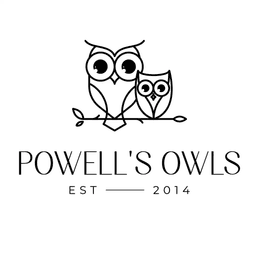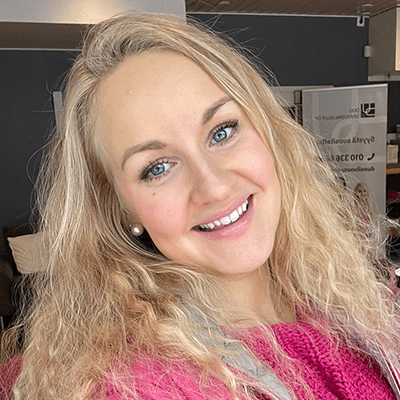How Powell’s Owls Sold a Niche Ecommerce Jewelry Business for $100k in 4 Years

Business Description
Table of Contents
Navigate through the case study sections
Executive Summary
Case Study Content
Turning Niche Ecommerce Into Cash: The Powell’s Owls Story
Getting a side project off the ground is never simple, but turning that into a $100,000 payday in less than four years is almost unheard of for solo sellers. That's what happened with Powell's Owls. Set up by Gavin Flook as an online store for certified Baltic amber jewelry, Powell's Owls grew out of a desire to fill a gap for natural, high-quality gift items, especially for parents wanting alternatives for teething infants.
The Genesis: Side Project to Side Income
Gavin started Powell’s Owls in 2018 after noticing the rising demand for authentic amber teething jewelry and gifts. With sourcing challenges and skepticism about amber’s efficacy (and authenticity) plaguing the market, he saw an opportunity: guarantee only genuine, GIA-certified amber and build a brand customers could trust. The brand quickly became associated with natural pain relief products for both children and adults, especially teething necklaces and mittens for babies.
He kept the business running as a side project while still working full-time elsewhere, letting technology run most operations on autopilot. Orders were processed via Shopify, and customer communications, email flows, and content were automated with standard ecommerce tools. Inventory was streamlined via strong and consistent relationships with overseas suppliers, letting Gavin scale up without adding complexity to his life.
Zero Outside Funding: Bootstrapped by Necessity
Everything was paid for out-of-pocket. No VC, no Kickstarter, nothing. Each product sold helped fund the next inventory batch. This forced discipline: avoid big expenses, double-down on what worked, and skip anything optional. The biggest investments were in inventory and small, strategic ad spends. Everything from logo to marketing materials came from a shoestring budget, avoiding bells and whistles and keeping ROI in focus.
Building Trust: Quality and Certification
Baltic amber can be a tough product category, fakes are everywhere online. Gavin handled this by clearly advertising Gemological Institute of America certification for all amber pieces. This simple trust signal, plus friendly customer support, set Powell's Owls apart. The store's social proof also grew naturally, as happy customers submitted photos and glowing reviews, especially from parents seeing good results for their teething babies.
Marketing: Focused Channels and Community
Most buyers came from social media and organic search. Instagram and Facebook allowed the brand to weave together authentic user content, influencer outreach, and targeted ads. Email marketing nurtured a 15,000-strong list, mixing education (about amber and care) with product launches and deals. Paid and affiliate campaigns were experimented with, but organic reach did most of the heavy lifting. Site SEO targeted niche, product-focused keywords not dominated by much larger brands.
Customer: Demographics & Lifetime Value
The typical customer was a health-conscious woman between 25-45 looking for alternatives to over-the-counter pain relief for their child or themselves. Data at the time of sale showed:
- 76% of customers were women
- 44% aged 25-34
- Database of 15,000+ customers
Automating Operations: Low Touch, High Impact
Most processes were fully automated. Shopify handled orders and integrations, ShipStation (and sometimes in-house fulfillment) streamlined shipping, and returns were rare thanks to product quality. Gavin only jumped in when customer issues needed empathy or overseas logistics needed a nudge.
The Sale: Flippa and Transfer
In 2022, as life changed and Gavin was relocating with his newborn back to Australia after 8 years in the U.S., he decided to put the project up for sale on Flippa. Thanks to transparent financials (revenue of $137,382 per year, $73,877 profit, 54% margin), an active customer base, and no red flags, the business attracted buyers quickly. It sold for $100,000 at a 1.4x profit multiple. The sale included all brand assets, supplier contacts, documentation, software logins, and 4 weeks of transition support from Gavin to the new owner.
What made the business so saleable wasn’t vast size, it was the stability, defensible niche, and growth options ready for the next owner. The buyer immediately recognized the potential in paid marketing, influencer ramp-up, and international expansion.
Lessons and Opportunities
- Pick a niche where trust and authenticity matter, it can be a major differentiator.
- Automation and supplier reliability free you to scale without piling on headaches.
- Grow a focused email database and treat your list as your business lifeblood, not just a sales channel.
- You don’t need outside funding to make something valuable, discipline wins.
Conclusion
Powell’s Owls proves that a one-person ecommerce project, built around authenticity, smart automation, and disciplined growth, can create a life-changing exit. If you want to replicate this success, focus on niche, trust, and what you can automate. Don't get carried away with hype or funding, just keep it simple and consistent. If you do, you might just find yourself in a similar situation: with a thriving online shop, a loyal community, and a six-figure sale in the bank.
Key Takeaways
- 1Building trust through product authenticity and third-party certification is essential for niche markets.
- 2Powell’s Owls succeeded as a bootstrapped side project, demonstrating that you don’t always need VC funding to achieve a lucrative exit.
- 3Automating order and inventory management allowed the owner to scale efficiently without hiring staff.
- 4A focused customer base, 76% women, mostly aged 25-45, helped create tailored marketing that fostered loyalty.
- 5Organic growth, especially through social media and email, outweighed paid advertising in driving sales.
- 6Selling through Flippa was fast and efficient due to strong financial documentation and clear transfer processes.
Key Facts
Tools & Technologies Used
Premium Content Locked
Subscribe to access the tools and technologies used in this case study.
Unlock NowHow to Replicate This Success
Premium Content Locked
Subscribe to access the step-by-step replication guide for this case study.
Unlock NowInterested in Being Featured?
Share your success story with our community of entrepreneurs.
Explore More Case Studies
Discover other inspiring business success stories

How Valor.Bet & Valor.Casino Built a $1.23M Custom Online Casino
Valor.Bet & Valor.Casino built a custom online casino MVP in nine months with an $1.23M budget. CEO Danil Fokin assemble...
Valor Partners

How Aurikatariina Turned Cleaning Videos into a $36K/Month Business
Aurikatariina started filming herself cleaning free “trash pickup” and neglected homes in late 2020. By honing a narrow ...
Aurikatariina Cleaning Channel

How Brian Nagele Turns Viral Memes Into $20K/Month
Brian Nagele leveraged the quick-hit nature of memes to build multiple niche-focused Facebook pages. By consistently pos...
Brian Nagele Media